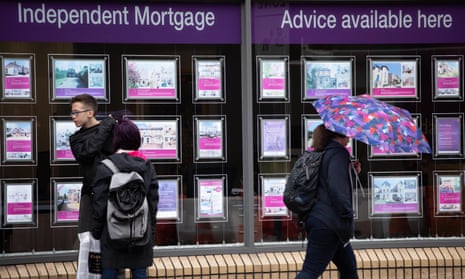More mortgage deals are starting to emerge for homebuyers who can only manage a small deposit – but those looking to buy a flat are increasingly finding themselves excluded.
On Wednesday, Yorkshire building society’s Accord Mortgages arm became the first lender to return to the 95% loan-to-value (LTV) mainstream mortgage market. But this five-year fixed-rate at 3.99%– available to first-time buyers with a 5% deposit – can’t be used to buy a flat.
Similarly, Nationwide building society says that for all mortgages above 85%, it will only lend on houses and bungalows – flats, maisonettes and new-builds are excluded. Ditto with Virgin Money’s new range of 90% home loans for first-time buyers. This reflects the fact lenders are looking to protect themselves against potential price falls as furlough ends and unemployment possibly jumps.
There is also the separate issue of flats that have been left potentially unmortgageable in the wake of the Grenfell Tower fire tragedy.
Nick Morrey, product technical manager at mortgage broker John Charcol, says that lenders “remember the 1990s, when a bad property crash saw over 40% wiped off values and flats were particularly badly hit”. The bottom line, he adds, is that “flats are treated differently to houses – especially for new-build”.
Speak to an independent mortgage broker, because the rules and restrictions in this area can get very fiddly.
Take Virgin Money, says Mark Harris, chief executive of mortgage broker SPF Private Clients. It caps lending on new-build flats at 75% LTV, secondhand apartments at 85% – but if the whole building has more than 10 storeys, LTV is capped at 80%.
It’s similar at Barclays. If you are buying a secondhand flat costing less than £220,000, you can borrow up to 95%. This falls to 85% for those costing more than £220,000. For a new-build there’s an 85% maximum.
At the time of writing, Barclays had several 90% fixed-rate deals for first-time buyers starting at 3.48%, plus its “Family Springboard” – a family member or friend can put up some money as security – available up to 100% LTV.
Morrey says other lenders that will go up to 95% LTV on secondhand flats include Santander (though the maximum loan size is £380,000, compared with £570,000 for houses). At Skipton building society the maximum loan for those with a 5% deposit is £450,000. However, as of last week, neither had 95% deals on sale.
When it comes to new-build flats, a few lenders will let people borrow up to 90%, including Aldermore Bank and Kensington Mortgages, says Morrey. Others that will go up to 85% include Halifax and Metro Bank.
By contrast, several lenders, including Nationwide and NatWest, cap loans on new-builds at 75%. Morrey says all this means that your choice of lenders is significantly narrower, so use a broker who can scan the whole market.
The new government scheme to increase availability of 95% mortgages, announced in this month’s budget, aims to tackle lenders’ concerns about house price falls by giving banks the chance to buy a guarantee on the part of the mortgage between 80% and 95% LTV.
The government would cover that chunk of the lender’s losses if a home had to be repossessed following a property crash. The scheme will open for new mortgage applications in April, so we can expect to see details of the deals that will be available start to emerge over the coming days. For example, Santander said last week it was “working to launch 95% LTV products in line with the government’s timescales”.
